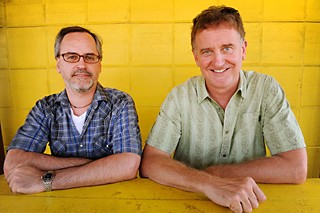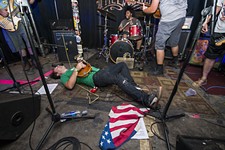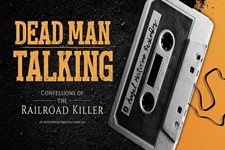A Wild Pitch of a Life
No No: A Dockumentary chronicles the legendary life of pitcher Dock Ellis
By Chase Hoffberger, Fri., Sept. 5, 2014
If you know only one thing about the pitcher Dock Ellis, it's probably that he once threw a no-hitter for the Pittsburgh Pirates while high on LSD.
Anything else you know about Ellis likely boils down to the events surrounding that folkloric game against the San Diego Padres on June 12, 1970. Ellis faced 36 batters, walking eight and hitting another. Legend has it Ellis couldn't see the batters, and required his catcher to wear reflective tape on his fingers so he could decipher signals. He dove on balls that weren't hit toward him; called an out he recorded a "touchdown."
What most don't know is there was actually so much more to the pitcher Dock Ellis than what shone through from that one evening.
Raised in Los Angeles in the Fifties, Ellis arrived in Pittsburgh in 1968 as a mean, magnificent, and maniacal 23-year-old pitcher with an exploding windup delivery and a fastball that naturally ran up on batters' knuckles. He won 138 games throughout his 12 years in the big leagues, maintained an earned-run average below 3.5 during that time, and earned a World Series ring in 1971 – the same year in which he and Oakland Athletics ace Vida Blue squared off as the first pair of black pitchers to ever start an All-Star Game.
"My ball was heavy; it moved," he once offered. "The look of me chewing the gum I knew put fear in some of them's heart. They don't know what this fool might do out there."
Ellis was a master at the psychology of pitching, the kind of hurler who would use every trick to his advantage. He snarled, violently shook off signals, and paced off the mound without direction. "Dock said that pitcher and poet were up to the same tricks," wrote Donald Hall, the eventual poet laureate responsible for writing Ellis' biography. "'All I'm trying to do is fool 'em.' When you expect robin's-egg blue, I suppose, you get rubberized cement."
He wore curlers in his hair during warm-ups, once invited himself over to a racist's home for supper, and regularly beaned batters to obtain a mental edge. He sparred with Muhammad Ali in locker rooms, earned the admiration and guidance of Jackie Robinson, and called out Hall of Fame managers for racial prejudice.
He was Black America in the Seventies: loud, whip-smart, and fearless.
That's the enduring image Austin director Jeffrey Radice brings into focus in No No: A Dockumentary, a 100-minute film detailing the Los Angeles native's 63-year life, told through the lens of childhood friends, family, professional pals, and former teammates. (Ellis died of liver disease in December 2008.)
"The no-hitter is an easy hook," explains Radice, who had produced a few short documentaries before – including one titled "LSD a Go Go" – but had never before directed any films. "Almost 99.9 percent of the people who have heard of Dock know of him because of that story. It's salacious and risqué.
"We always wanted to use it as just a hook, though. Lead with that and deliver all the background on the other things he did inside baseball – and outside of baseball, as well."
Indeed, the legend of Ellis' no-hitter has proven so profound that it's actually what helped Radice initially begin production. It was Radice's replaying of Ellis' own account of the no-no, delivered in 2008 to Donnell Alexander and Neille Ilel for Minnesota Public Radio, that eventually lured producer Mike Blizzard into the picture. That's the audio that ultimately made Ellis a cult legend when NoMasTV animated his account for a comical, red-eyed YouTube short now seen more than 3.5 million times.
"I was like 'Damn, this personality!'" relays Blizzard. He accepted Radice's invitation to produce the film in the aisle at a screening of Bob Ray's Hell on Wheels documentary about the TXRD Lonestar Rollergirls, and arranged a meeting with former MLB pitcher Scipio Spinks shortly after.
Spinks, eventually an adviser to the film, was in Round Rock scouting an Express game on behalf of the Houston Astros. He got Radice and Blizzard in touch with Tom Reich, Ellis' old agent, and an early defender of the rights of minority players in the late Sixties and Seventies. Reich was able to give them the Holy Grail of old-timer baseball documentaries: the 40th anniversary celebration for a World Series winning team.
Through interviews with old teammates, as well as those with Ellis' childhood friends and family members, Radice uncovers a charismatic and raw figure, one who remained mostly loving and loyal through addiction and in recovery – speaking openly about it, even working with professionals to help others face it.
Most of that is captured in the documentary's later sequences, which incorporate unused footage from a first-season episode of Bob Costas' Costas Now and interviews with director Ron Howard, who cast Ellis for a bit role in the 1986 comedy Gung Ho. It's in the Costas footage that we see inside the walls of Operation New Hope, the California rehabilitation space where Ellis worked as a drug counselor late in life. In the segments surrounding Gung Ho, Ellis confronts his feelings about the no-hitter.
"Dock wasn't necessarily proud of it," notes Radice: "His widow Hjordis told us, in public he hammed it up. Privately, he was much more regretful." Indeed, in Hall's biography, written in 1976, Ellis and Reich even attempted to censor it, telling Hall to Band-Aid the truth by saying he'd shown up to the game only drunk on vodka.
"He didn't remember most of the game. Toward the end of his life, it was a real black mark. Ron Howard [helped us understand Ellis' true feelings]. Because at that point in [Ellis'] life, he had begun to talk about it among this crowd of comedians who were making it into this big thing."
Radice does look into the no-hitter eventually, maintaining that he "really wanted to investigate the story" for the story's believers and its doubters. Covering both Ellis' stayover the night before in Los Angeles and the fateful game that made the pitcher famous, the director spends merely five minutes on the sequence. That's one-twentieth of the documentary's full runtime – a fitting fraction for a life about so much more.
No No: A Dockumentary opens Friday, Sept. 5, at the Alamo Drafthouse South Lamar.










